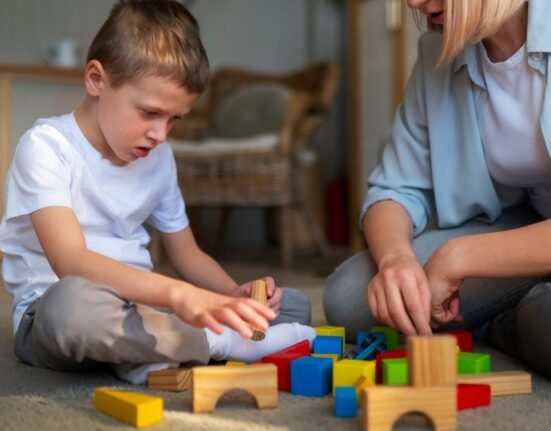Discriminating or treating someone like they’re less capable just because of their race, is what racism is all about. It is an ethnocentric belief that one race, be it in physical features, caste, traditions, culture et cetera is superior to another present. Especially in a diverse country like India, where people of different beliefs are supposed to be living peacefully and harmoniously, but the reality is quite different. Some minor or “ backward” races are still, in this 21st century, looked down on, and mistreated, just because they belong to a race differently than others. That is also why the system of reservation was introduced in India as well, to establish unity and provide power.
According to Assistant Professor and Consultant Psychologist, Muthulakshmi S, Racism is a learned behaviour, not a genetic trait. Though it has a big history, theories and people who tried to eradicate it in different cultures it does prevail in modern society despite social awareness and equality efforts. In many cases, it manifests subtly through microaggressions, biases and system inequalities such as education, healthcare, politics and employment. Many progresses are made but it didn’t completely dismantle racism. A few factors behind racism can be cognitive biases, socialisation, inter-group dynamics, emotions, culture and economy.
In the minds of racists, there is a marathon of thoughts mainly filled with superiority, hostility towards people of other races and resentment. One example of modern-day racism can be: “I don’t want to live in a neighbourhood with too many [a certain race] residents. They bring down property values and make the area unsafe. I’d rather keep to myself and surround myself with people who look like me. It’s just natural to stick with what’s familiar and avoid what’s different.” This example illustrates how modern racism can manifest in housing discrimination and segregation, driven by stereotypes and a desire to maintain social and economic advantages.
Understanding Racism
Racism is founded on oppressive structures and is aimed at a certain racial group. Racism is the act of discriminating against people based on what race they belong to. It is associated with feelings of superiority and dominance against the” weaker” race. “Racism is a form of prejudice that generally includes negative emotional reactions to members of a group, acceptance of negative stereotypes, and racial discrimination against individuals; in some cases, it can lead to violence.” -American Psychological Association.
There have been many cases, especially in the West of violence, emerging as a form of racism, where the person who is discriminated against is either beaten or abused just because of how they look and how they live their life. Racism, prejudice (biased thoughts), stereotypes (preconceived beliefs based on cultural factors), and discrimination (discriminatory behaviour or acts) are often attached.
Prejudice versus Racism
Prejudice often goes hand-in-hand with stereotypes as prejudice is considered to be having preconceived notions or ideas, often based on stereotypical beliefs about a particular group, race, caste or even gender. Stereotypes are often found to be rooted in cultural norms and practices, feeling that their group or culture is supreme, leading to feelings of prejudice and discriminatory beliefs. Whereas, racism, specifically, is a form of prejudice against a particular particular race or ethnic group.
Read More: Defence Mechanism: What They Are And Why We Use Them
Using Racism as a Defence Mechanism
According to Charles Darwin, some associate racism with the notion of discriminating against the weaker or the minor race, which is not capable of surviving as they are not considered fit. Defence mechanisms are your body’s way of protecting itself from anxiety, and producing thoughts, here, racism is used as a defence mechanism to provide a sense of superiority, power, and identity to fit in and feel that belong.
- A strong sense of social identity and in-group bias or favouritism to one’s race, providing a sense of belongingness and attachment
- Lack of compassion for the discriminated race and its people, as people may not be able to find association and connection, hence leading to discrimination
- Scapegoating is the practice of the dominant group blaming a minority outgroup for its own political, social, or economic issues. The minority is either too tiny or too weak to counter such allegations and protect itself.
- Hatred and fear almost go hand-in-hand, as hatred is originated by fear and here, people may feel that their power may get diminished with the presence of targeted groups and some sort of fear is created, which leads to hatred towards that particular race.
Read More: What Is The Psychology Behind Hate?
Racism and Psychological Well-being
Xenophobia is a result of racism and causes insecurity in people. Racism is one of the causes of psychological ill health. It causes psychological destruction, leading to feelings of inferiority, low self-esteem, feelings of loneliness, and inner security. Because they do not need to reinforce their sense of self through group identity, psychologically healthy individuals with a strong sense of self and inner security are not racists. They don’t have to distinguish themselves from other people and put themselves in opposition to them.
According to Counseling Psychologist Bharati Gadekar, Experiencing racial discrimination can take an emotional toll and can trigger chronic stress, anxiety, depression and racial trauma. Overall it can have a serious mental health toll among racially discriminated persons.
Fighting against racism is not about being a non-racist, it is about speaking up in case of any discriminatory practice against any race and taking steps and actions to control it. Learning to be anti-racist is very important. On an individual level, one can challenge, racist beliefs and ask people for the reason as to why they are behaving in such a way.
As parents, children mustn’t be young to be inclusive of their surroundings and empathetic of people and their struggles, irrespective of their backgrounds and race. It is important to foster feelings of unity. It is advised that people who have suffered from discriminatory practices based on race step against self-fulfilling prophecy against their race and culture and take mandatory steps to control any misbehaviour if noted. One can take professional help to overcome bad experiences, which can lead to trauma and psychological problems as discriminating based on race is also lawfully invalid.
References +
- Cuncic, A., MA. (2024, February 12). The psychology of racism. Verywell Mind. https://www.verywellmind.com/the-psychology-of-racism-5070459
- Racism, bias, and discrimination. (n.d.). https://www.apa.org. https://www.apa.org/topics/racism-bias-discrimination
- Salter, P. (n.d.). Psychology of racism. Noba. https://nobaproject.com/modules/psychology-of-racism
- Testbook. (2023, August 9). Racism in India: evolution, types, impacts Notes for the UPSC exam. Testbook. https://testbook.com/ias-preparation/racism
- Taylor, S., PhD. (2021, June 29). Racism is a sign of a lack of psychological maturity and integration. Psychology Today. https://www.psychologytoday.com/us/blog/out-the-darkness/201801/the-psychology-racism













Leave feedback about this